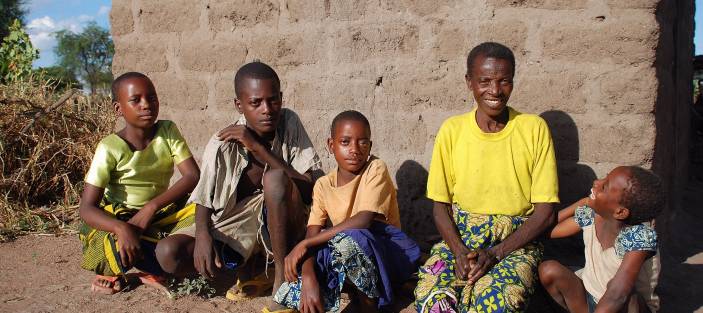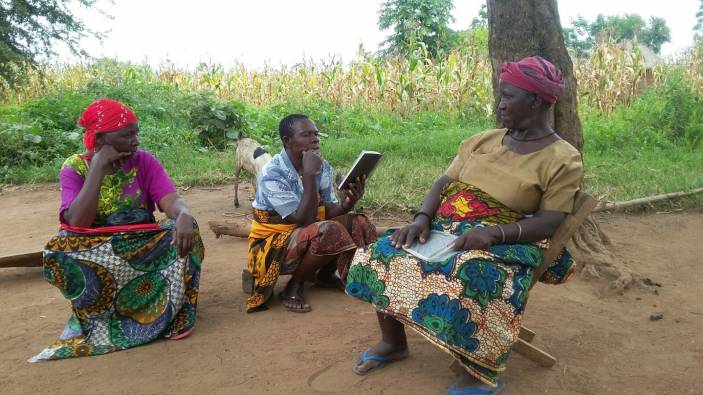
This year’s International Women’s Day theme is “Planet 50-50 by 2030: Step it up for gender equality” – a befitting focus when time and time again we hear that if a society does not respect its women and uphold their rights, it is doomed to fail.
Increasingly, International Women’s Day has been used to reflect on progress, to celebrate acts of courage and determination by ordinary women who have played an extraordinary role in the history of their countries and communities. But it is also a time to look forward and call for further action to ensure women do not continue to be left behind, to genuinely “step it up for gender equality”.
On this special day, I would like to pay tribute to some of the brave older women who defy society’s long-held, discriminatory beliefs that threaten their right to life. I would like us to celebrate these individuals who are rising up to seek equality and respect for the human rights of all women, to guarantee they get the protection they need.
Life in Tanzania for women
Despite remarkable economic gains in Tanzania, gender inequalities still persist. Women’s domestic responsibility significantly impacts on their health and wellbeing. They spend a great deal of their time in unpaid care work – hard graft that they are not recognised for.
Despite shouldering the burden of family care and constituting half of the population, women in Tanzania continue to face discrimination in acquiring, holding and using land, with only 20% of women owning land in their names.
This is even worse when a woman is older, is widowed, has no family to care for them and is burdened by care responsibilities for vulnerable children. Gender and age-based discrimination intersect and result in acute forms of marginalisation, subjecting them to new and distinct forms of discrimination that amplifies a lifetime of gender inequality.
Over the years great strides have been made towards gender equality through mainstreaming policies. However, a lot more needs to be done to bring transformational changes.
Claiming rights
One of HelpAge International’s key missions is to challenge violence and discrimination perpetrated by negative cultural beliefs and practices, such as the victimisation of older women through accusations of witchcraft. These heinous acts have led to the death and physical injury of thousands of women over the years in Tanzania.
Through projects funded by the European Union and the German Ministry of Cooperation, HelpAge has been striving to promote and protect the rights of older women. We empower older women by training them as paralegals, spokespeople and helping them document their family history through memory books and writing wills. This educates older women and gives them the knowledge needed to prevent injustices through unfavourable laws that deny them the right to own, inherit and dispose of property.
Anastasia, 69, is one of the courageous women who, through the training she received, challenged through the courts an attempt to dispossess her of her land. “The protracted legal process did not deter me. I knew my right and I went to claim it,” she said.
More older women now overcome cultural taboos on subjects such as death, and have taken it upon themselves to write their will and ensure it is kept safely with a member of their family or a local pastor.

Holo, 64, who is seen in the picture above reading from her personal memory book said: “My older sister who I sent my will for safe keeping was shocked. She asked me where I got this information from and told me that I have inspired her to discuss with her husband writing their own will.”
These women have been fortunate to have access to this information. For millions of others, customary practices continue to make it difficult to own land. They are able to use it through their husbands or male relatives, but once those individuals die they lose it.
As we mark this year’s International Women’s Day, let us challenge gender inequalities and ensure women of all ages benefit from policies and programmes that promote equality, and respect the human rights of all women of all ages, abilities and status. It is only when we have done this that we can achieve a prosperous society that includes everyone.
